Which Vegan Foods Have the Most Protein? These Plants Are Powerhouses
Protein is easy to get on a vegan diet
Published Nov. 17 2020, 4:45 p.m. ET
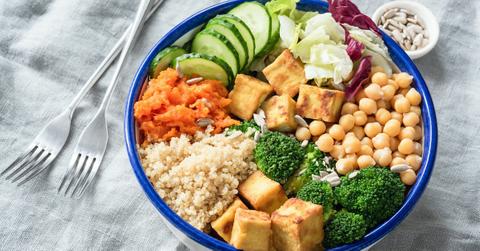
If you’ve been either vegetarian or vegan for more than five minutes, chances are you have been asked “But how do you get your protein?” at least once since choosing a plant-based diet. The source of our protein is an alarming but impassioned concern of most meat-eaters thanks to an overemphasis on high-protein diets in our society.
In reality, vegans (and vegetarians) can get a perfectly adequate amount of protein from their plant-based diets, and anyone who suggests otherwise might be putting too much stock in the benefits of protein.
According to the National Academy of Sports Medicine (NASM), standard nutritional guidelines suggest a daily intake of anywhere from 1 to 1.5 grams of protein per pound for athletes and those who exercise heavily. But what about the average person? For those of us who aren’t aiming to lose weight or win an event at the Olympics, the Dietary Reference Intake (DRI) is 0.36 grams of protein per pound.
So, if you are an “average sedentary man,” the DRI suggests about 56 grams of protein per day; if you are an “average sedentary woman,” the DRI suggests 46 grams of protein per day.
With these guidelines in mind, a vegan person could easily reach the daily suggested intake of protein, even if they aren't focused on including protein in all of their meals… but especially if they're consciously consuming vegan foods that are the highest sources of protein. Keep reading to find out which vegan foods are the highest in protein.
Vegetables
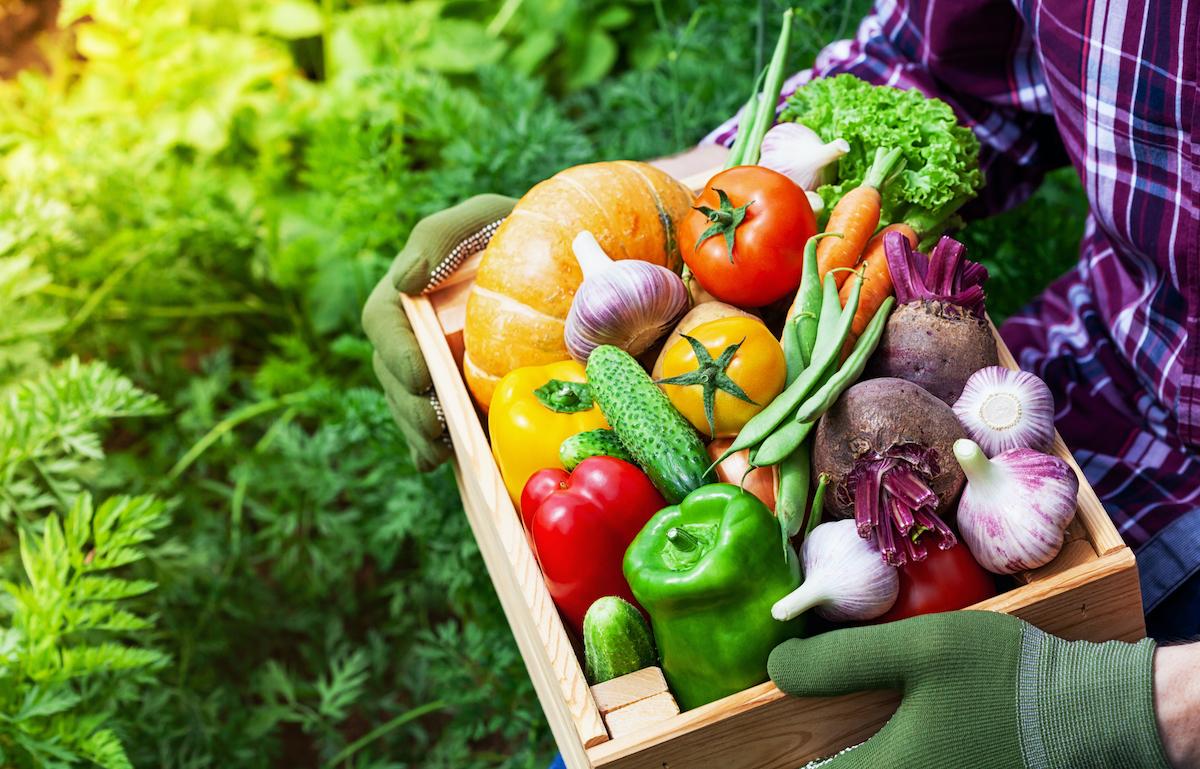
Most vegetables contain a considerable amount of protein, despite a convenient narrative that plant-based diets contain little to no protein. But while it is true that meat definitely contains more protein than most vegetables, some veggies are more packed with protein than others.
The vegetables with the highest amounts of protein include asparagus, artichokes, broccoli, Brussels sprouts, potatoes, spinach, and sweet potatoes. Each of these veggies contains anywhere from 4 to 5 grams of protein per cooked cup.
Nuts and seeds
This category includes most nuts, seeds, nut butters and seed butters, like peanuts, almonds, cashews, chia seeds, sesame seeds, sunflower butters, and tahini. One ounce of any of these nuts and seeds contains anywhere from 5 to 7 grams of protein. However, hemp seeds contain some of the highest levels of protein, with a total of 10 grams of complete, digestible protein per ounce of hemp seeds.
If you’re not sure how to integrate nuts and seeds into your daily eating routine, you can start by adding chia seeds or ground flaxseeds to your smoothie or acai bowls.
Grains
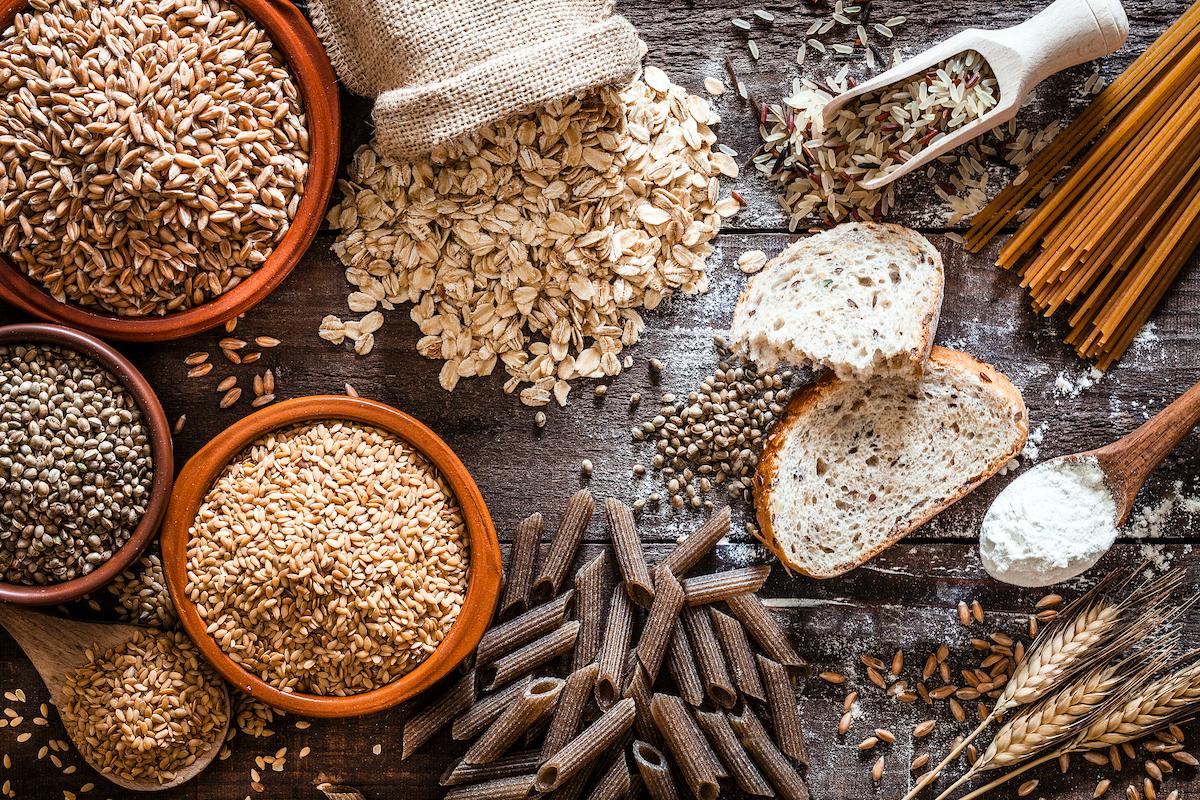
Based on the grain, you’ll get a varying amount of protein. One cooked cup of wild rice has as much as 7 grams of protein, while a cup of cooked brown rice has about 5 grams of protein; quinoa and amaranth, both ancient and gluten-free grains, offer anywhere from 8 to 9 grams of protein per cooked cup.
But quinoa and amaranth don’t take the gluten-free cake for the highest amounts of protein. That honor goes to spelt, which contains anywhere from 10 to 11 grams of protein per cooked cup.
Even foods made from white flour (such as bread, bagels, and pasta) contain protein, though obviously these aren't the healthiest choices. One 2-ounce serving of white pasta contains about 7 grams of protein.
Oats
Oats can be added into so many different recipes including cookies, cereals, veggie burgers, baking, and of course, oatmeal. Though not a complete protein, oats also offer a significant amount – 4 grams to be exact – of fiber. Half a cup of dry oats provides about 6 grams of protein total, so a bowl of oatmeal in the morning is an easy way to integrate more protein into your diet.
Ezekiel bread
Ezekiel bread is a specific type of bread made from organic, sprouted whole grains and legumes like spelt, wheat, barley, lentils, and soybeans. Because of this, Ezekiel bread is considered a significant source of protein. Just two slices of Ezekiel bread contains about 8 grams of protein and also a healthy dose of amino acids, vitamin C, vitamin E, beta-carotene, soluble fiber, and folate.
Spirulina
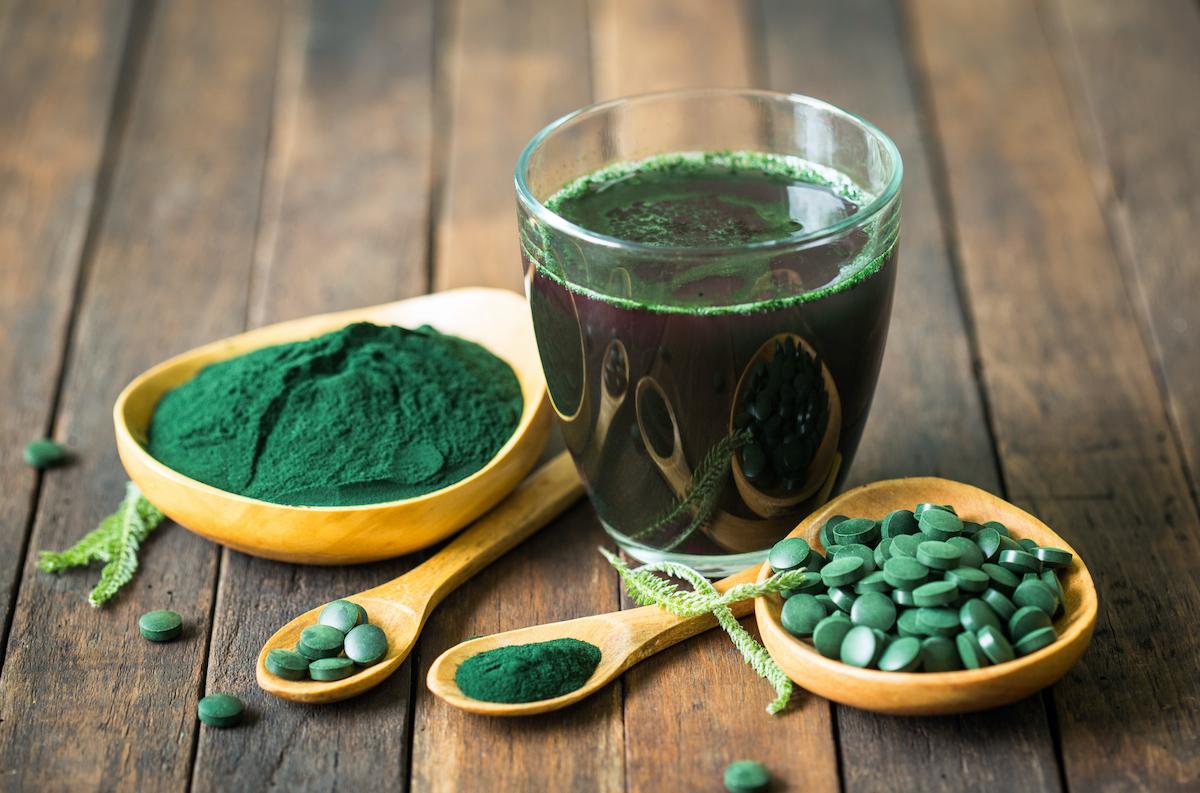
Spirulina, a blue-green algae, has long been lauded as a superfood, with science linking it to stronger immune systems, reduced blood pressure, better regulated blood sugar, and even the prevention of oral cancer. Just two tablespoons of spirulina powder will add 8 grams of protein (and a gorgeous blue or green hue) to your morning smoothie, acai bowl, fruit and vegetable juices, energy balls, or even soups. You can also take it in tablet form.
Soy
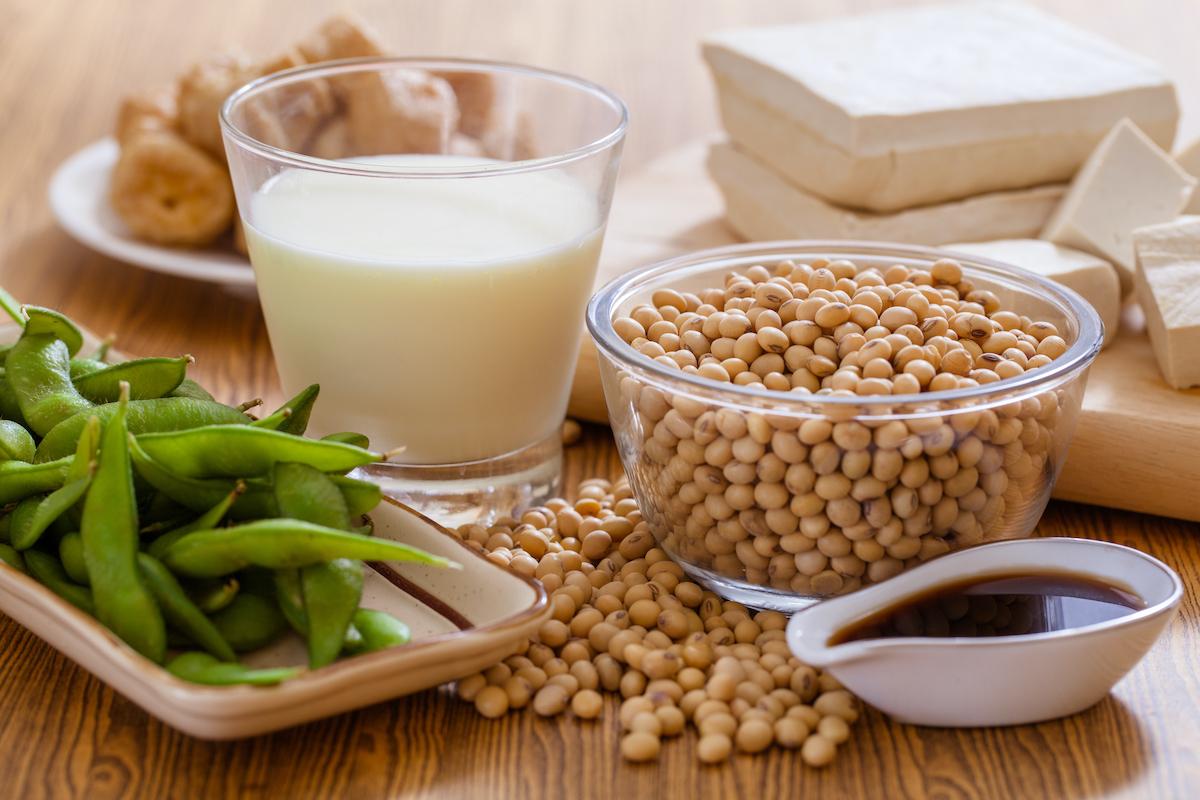
The category of soy includes a lot – various soybean-based proteins such as tofu, tempeh, and edamame can hold as much as anywhere from 10 to 19 grams of protein per 3.5 ounces. But even a glass of soy milk contains some protein: about 7 grams of protein per cup to be exact.
Nutritional yeast
Nutritional yeast is a go-to protein hack for vegans and vegetarians. With 14 grams of protein per ounce, powdered nutritional yeast is an easy way to add protein (and a hint of flavor) to just about anything: pasta, soup, hummus, vegan pizza, chili, avocado toast, salad dressings, and dips.
Chickpeas and beans
Many beans are high in protein, but they are also good sources of fiber, iron, folate, potassium, manganese, and more. Chickpeas, or garbanzo beans, are technically a legume, but they contain just about as much protein as pinto, black, or kidney beans – about 15 grams of protein per cooked cup.
Peas (including green peas, split peas, black-eyed peas, and the like) are also legumes, with pretty solid protein content. One cup of cooked green peas contains about 9 grams of protein.
Lentils
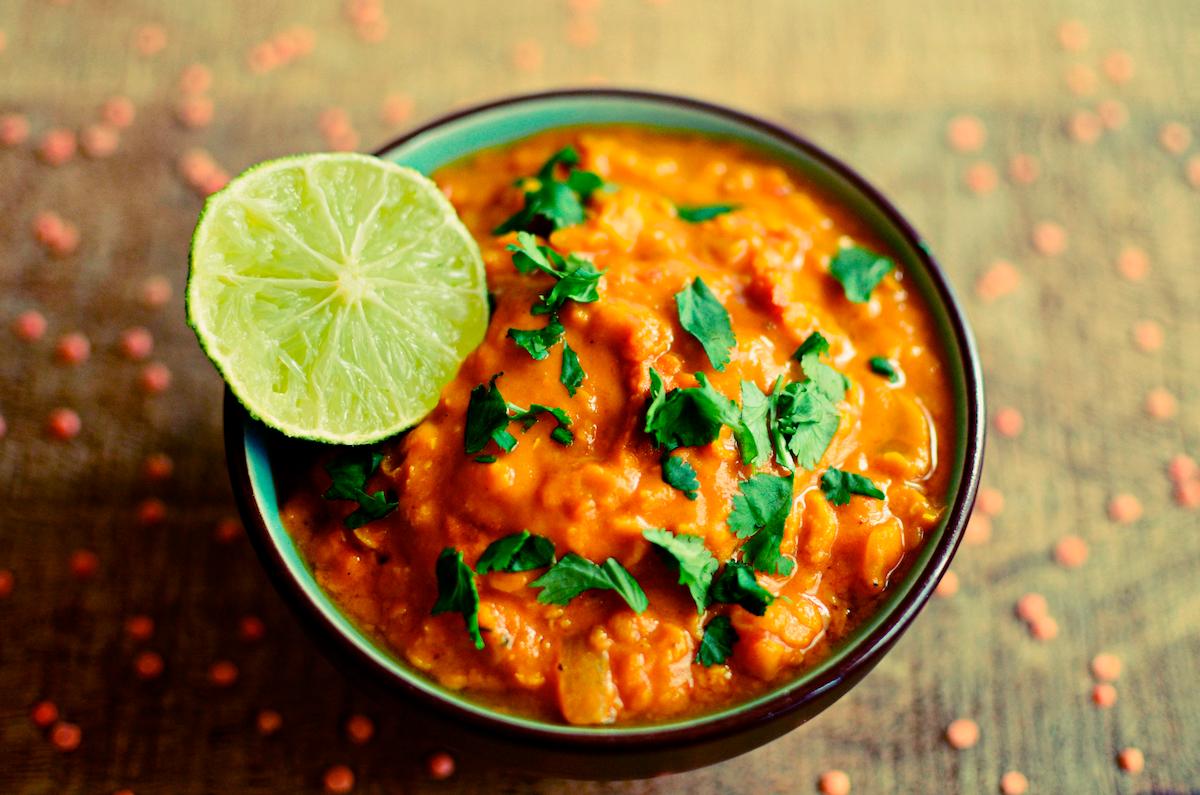
Lentils are legumes with a whole lot of fiber (about 50 percent of your recommended daily intake in just one cup), folate, manganese, and iron. And of course, protein – 18 grams of it per cooked cup. Lentils have also been associated with reduced risk of diabetes, heart disease, obesity, and certain types of cancer.
Seitan
Seitan, one of the most popular sources of protein for vegans, is actually the vegan food with the highest amount of protein. It’s made and often prepared as an alternative to meat but marinated like meat typically might be. However, it’s a plant-based source of protein and not meat at all.
Seitan is made from wheat gluten and as such, contains about 25 grams of protein per 3.5 ounces. No wonder it’s so popular amongst vegans – that’s about as much protein as a 3-ounce chicken breast, flank steak, roast turkey, or the average lobster roll.